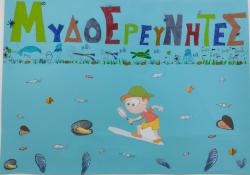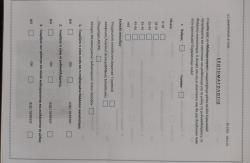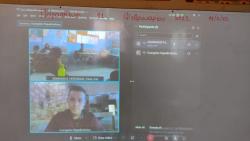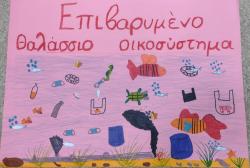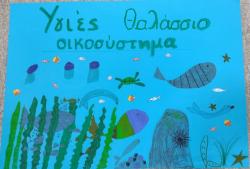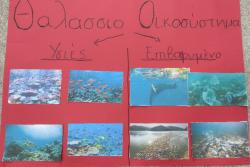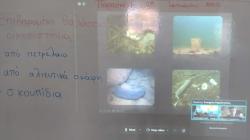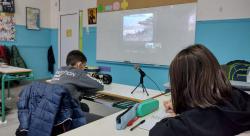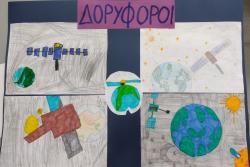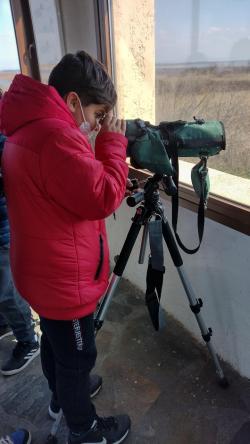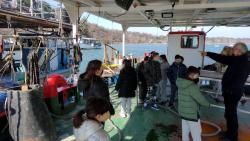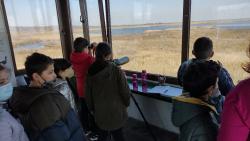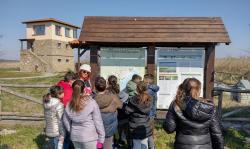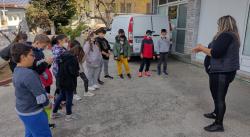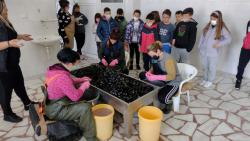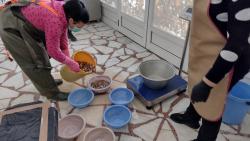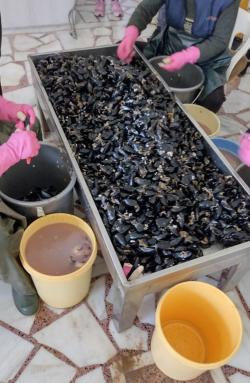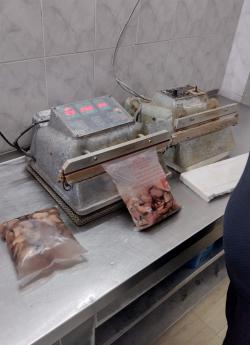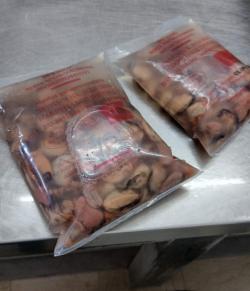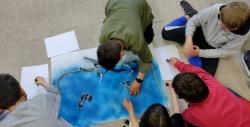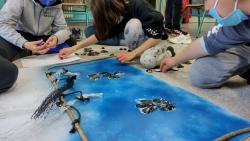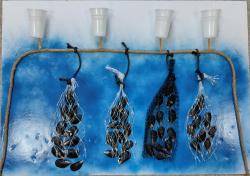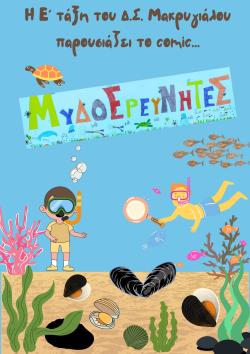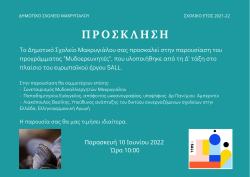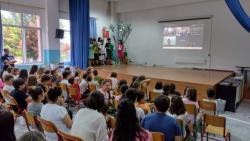Hosted by SALL , contributed by karydias on 10 February 2022
Through this project we will try to investigate the connection between mussel farming, climate change and local ecosystem.
First of all, we will define what marine ecosystem is and what we consider as healthy ecosystem. Then we will talk about mussels, how they are raised, what are the appropriate conditions and places for mussel farms and what is their role in the food chain. With the Local Mussel Farmers Cooperative we will visit the port of the area where they are going to show us the process of collecting mussels and after that the place where peel and pack the mussels. Then we will talk about satellites and their importance and through satellite images we will locate the mussel farms in our area. By help and knowledge of a local environmental organization we will visit a neighbouring observatory where we will observe with binoculars the extent of mussel farming that we saw on satellite images. The organization will inform us about the pollution caused in the area and at the end of Spring together with the Municipality we will take action by organizing an action of cleaning the local coast and inform local community. Implementing mathematics and arts we will create a questionnaire to be shared to local community so as to detect opinions and have a research on that. Furthermore we will try to create a simulation of a mussel farm by using everyday materials and things that mussel farmers use (like nets, barrels, mussel shells etc). Finally at the end of school year we plan to organise a "Mussel- day" and show to local community our work and our project and having a chef cooking and sharing recipes with mussels. Through the whole plan we have the theoretical guidance from an external scientific partner, an oceanographer, Mr Papadimitriou Evangelos.
Achtergrond
Thermaikos gulf and the area of Makrygialos is known for its mussel farms. Makrygialos is a village of 2000 people and our school is a small school of about 90 students. Most of our student's parents work on mussel farms and local community depends almost directly on them. However, pollution is observed in the sea and surrounding coasts, while in recent years mussel crops are also threatened with destruction due to rising sea temperatures. Last two years students with their families are leaving Makrygialos for other places because there has been a significant reduction in mussel production. We will investigate why there is pollution in the local ecosystem and how it could be eliminated. Then we will investigate the connection between the destruction of mussel farms last two years and the rise of sea temperature and how it is linked to climate change. Finally, we will try to propose solutions so that both mussel farms and local community continue to exist in a healthy environment.
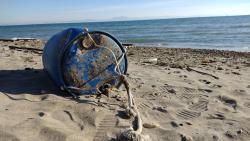
A plastic barrel used for mussel farms washed up on the shore...
Doel
The aim of the living lab project is for students and the local community to realize that the environment is inextricably linked to the lives and well-being of residents.
By protecting the environment and following the right process in mussel farming, mussel growers will not only continue to exist as a profession but will also help to alleviate the climate crisis.
Co-creatie met de partner(s)
Through the whole project we have the theoretical guidance from an external scientific partner, graduate student Department of Oceanography and Marine Life Sciences Aegean University, PhD candidate at University of Aberdeen in order to help us define a healthy marine ecosystem and what is the appropriate habitat for breeding mussels.
Local mussels farmers cooperative will show us the stages of breeding mussels visiting local port.
Environmental organization will inform us about marine ecosystems and how pollution and climate change affects mussel farms and marine ecosystem.
A local business will show us the stages of opening and processing mussels.
Co- organize with Local Municipality an action of cleaning local coast of Makrygialos.
A famous chef will cook and share with local community recipes with mussels.
Implementatie
We first discussed the name and logo of our team. The children created it, painted it and agreed that from now on this will be our "signature"! Then we started talking about marine ecosystems. The students had photos of congested and healthy marine ecosystems and put them in the correct position, while drawing both versions. Then we introduced mussels and mussel farms. After that the children created a questionnaire with questions made up by themselves to find out what local people know and think about our topics. Students have already collected questionnaires and are very excited to hand them out to their families and to their village. Last time we took it little further and we talked about satellites, their species, their use and how we can use them in our research. Time has come and we visited a nearby observatory where our students observed with telescopes and binoculars the mussel farms of our area and their extent. Moreover we had the chance to get on a mussell farm boat and to have a closer look at the tools that farmers use. Because of the weather and waiting for mussels to get bigger and allow farmers to take action and call us to see the procedure, we visited the place where mussels are being opened and proccessed. The village of Makrygialos hosts more than four places where mussel farmers bring and sell their mussels. Our students had the chance to see the whole procedure from the time when mussel farmers bring mussels, how are being opened, proccessed and packed in order to reach the final consumer and restaurants. At the same time, almost from the beggining students were working on the construction of a model simulating a mussel farm on the seabed and they finally completed.
The second year of our project students created and shared a digital comic to raise awareness in the local community about previous's year research and recorded a podcast to describe what happened in our school lab the past year.
You can see the digital comic here, in greek: https://online.fliphtml5.com/rcxgw/sxvv/#p=1
You can listen the podcast episode here in greek: https://spotifyanchor-web.app.link/e/6QKbuhCPwxb
Reflectie
Children with their teacher created a presentation to share their results of the program which run this school year. This event was attended by most of the social actors with whom we collaborated, parents and people who live in the village. Everyone attended was excited and said they had learned a lot from the job that children did through the project. Information about mussel farming, plastic pollution, mussels in food chain was usefull to everyone. Social actors gave positive feedback and wait for more to come.
In addition, students shared their digital comic with all participants and local community. https://www.canva.com/design/DAFbGkwwEow/Ar14xq0xaXE9PbBVPRIbjA/view?utm_content=DAFbGkwwEow&utm_campaign=designshare&utm_medium=link2&utm_source=sharebutton
Futurel Plans
The living lab is still alive! In the second year of implementation students created a digital comic to raise awareness in the local community about previous's year research and a podcast to describe what happened in our school lab the past year.
School decided to search for partners under the Erasmus+ umbrella and see how mussel farming is working in other countries and if they face same problems and challenges.
We plan to make a new research one and twoo years after the intervention so as to see if there is a difference in our area.
